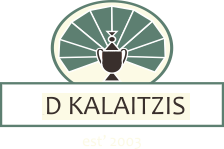Handling organic
vineyards
Leonardo Da Vinci once said: “We know more about the movement of celestial bodies than we know about the soil underfoot.”
April 4th, before leaves appear, vetch is ready to blossom and is cut, leaving dead plants on the ground to provide it with substances and protect it from the rain & sun.
Vetch’s dead roots dissolve, thus the remaining holes allow soil’s aeration also providing it with Nitrogen.
Did you know that plants have an “immune system” for fighting their enemies?
– How Phytoalexins, substances produced by plants so as to defend themselves against their enemies benefit our body’s function?
– Who can these enemies be?
– When does their immune system function better?
– What is the meaning/importance of a strong, healthy plant and its fruits to the end-consumer?
For instance if one “feeds” his/her vines with the well-known Vetch plant providing soil with organic matter and Nitrogen in an organic and not chemical form unlike chemical fertilizers, then he/she can grow healthy and strong plants, capable to cope with their enemies. Covering soil’s surface with dead Organic matter, such as cut vetch, conserves humidity, allows the proliferation of micro-organisms, useful insects, while at the same time its decomposition slowly feeds with nutritious matters one’s crops. At the same time the tips of Vetch’s “orphan” roots supply valuable Organic Nitrogen aiding to the healthy (and not chemical) development of plants. One should consider the difference between the nutritious value of livestock, farm-fed with hormones, antibiotics and enhanced fodder aiming to quick fattening & growth compared to that of wild cattle, wild-boar, etc. The same thing occurs with fishing farms and plants’ farms, where man interferes thus breaking Nature’s rules.
The rewarding end
In comparison to other alcoholic beverages wine contains the most anti-oxidants,
the most beneficial of them being: Resveratrol, Quercetin, & Catechins
"Dromon", rose (BIO)
(Dry rose Table wine)



